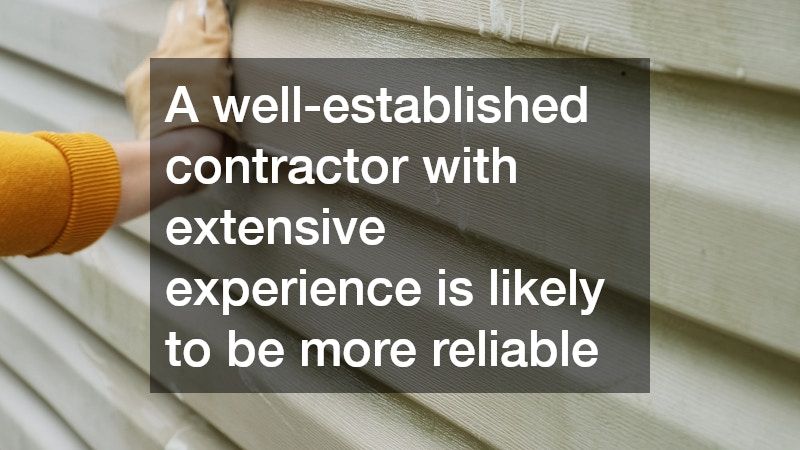When it comes to home improvement projects, choosing between local siding contractors and finding the right fit for your needs is crucial to ensure that your home not only looks great but is also protected from the elements. Explore the key factors to consider when selecting a siding contractor, answering some of the most frequently asked questions on the topic.
How Do I Find Reputable Local Siding Contractors?
Finding a reliable local siding contractor may seem daunting, but there are several effective methods to streamline the process. Begin with online research, using directories and service platforms that specialize in home improvement contractors.
Websites that aggregate customer reviews can help identify top-rated professionals based on real homeowner experiences.
Furthermore, seeking local referrals is a practical approach. Ask friends, family, or neighbors who have recently completed similar home projects about their experiences with siding contractors. Personal recommendations often come with insights that you won’t find online, such as the contractor’s communication style and work ethic.
Social media platforms and community groups are also valuable resources. By participating in local forums or groups, you can solicit recommendations and read about others’ experiences with local siding contractors. Engaging with your community can yield leads that may not be as visible through general searches.
What Qualifications Should a Siding Contractor Have?
When evaluating potential siding contractors, it’s important to verify their qualifications. Start by checking for necessary licenses and certifications, which indicate that the contractor is knowledgeable about local building codes and industry standards. Each state may have different requirements, so familiarize yourself with your local regulations.
Insurance is another critical aspect. Ensure that the contractor carries both liability insurance and workers’ compensation coverage. This protects you from potential liability in the event of an accident on your property, giving you peace of mind during the project.
Experience in the field is equally important. Consider asking contractors how long they have been in business and if they specialize in specific types of siding materials. A well-established contractor with extensive experience is likely to be more reliable and produce higher-quality work than a newcomer in the industry.
What Should Be Included in the Written Estimate?
A comprehensive written estimate is vital to avoid misunderstandings later in your siding project. Key components should include a detailed breakdown of labor costs. This clarity ensures that you know what you are paying for and can compare estimates from various contractors accurately.
Another essential element is the list of materials being used. The contractor should specify the type and grade of siding, along with other necessary materials such as fasteners and underlayments. This transparency allows homeowners to assess the quality of the project and make informed decisions.
Lastly, the estimate should provide a project timeline. Understanding how long the installation will take can help you plan ahead. It is also wise to ask about potential delays and how they will be communicated, ensuring that you stay informed throughout the process.
How Can I Assess the Quality of Materials Being Used?
Evaluating the quality of siding materials is essential for the longevity of your home exterior. Ask contractors about the brands and types of siding they offer, and look for well-known manufacturers that have a reputation for durability and performance. Research these materials on your own for a comprehensive understanding.
It’s also beneficial to inquire about warranty information. A contractor who offers a solid warranty on materials and workmanship showcases confidence in their products, which can provide reassurance for homeowners. Warranties can vary significantly, so understanding the details is crucial.
In addition, consider requesting to see samples of the siding materials. Physical samples allow you to assess color, texture, and quality up close. This step ensures that you are comfortable with the chosen materials before they are installed in your home.
What is the Typical Timeline for a Siding Project?
The timeline for a siding project can vary greatly based on several factors. First, the size and complexity of your home can influence how long the installation takes. Larger homes or those requiring extensive prep work may need a longer period to complete.
Weather conditions also play a significant role. Inclement weather can delay the process, so it’s essential to maintain open communication with your contractor regarding scheduling. Contractors familiar with local weather patterns often account for potential delays in their project timelines.
Finally, obtaining the necessary permits can affect your project’s start date. Before beginning work, make sure your contractor has secured the required permits, as this can significantly impact the overall timeline. Understanding these factors helps set realistic expectations for the completion of your siding project.
Selecting the right local siding contractor can significantly impact your home’s aesthetic and structural integrity. By focusing on these key factors, you can make an informed decision that will lead to a satisfying renovation experience and a beautiful, long-lasting exterior.




